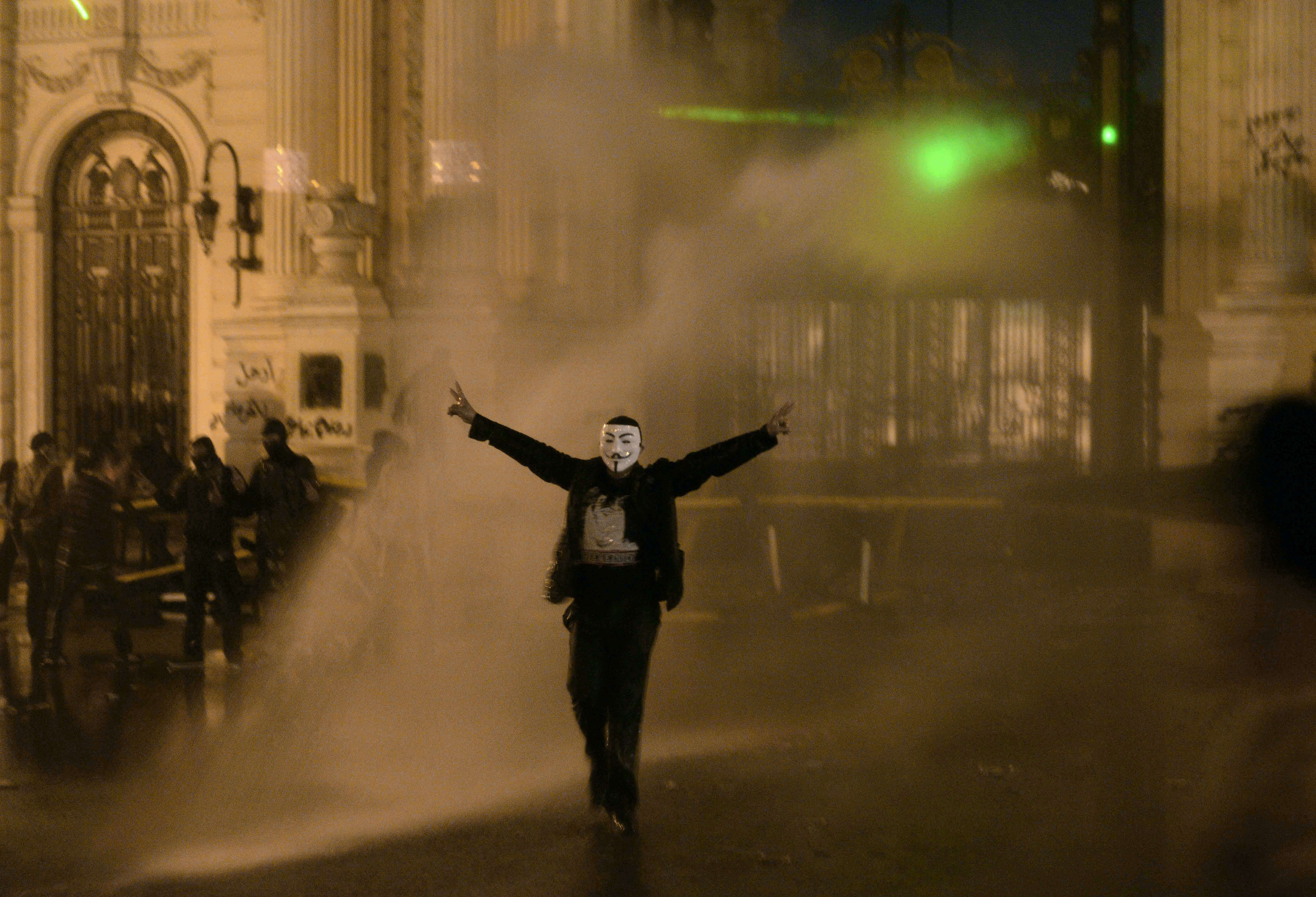
(Photo by Nihal Wahby)
By Fanny Ohier
The wake of the revolution saw an explosion of artistic expression, from painting to sculptures, music, festivals, dance and more. Despite several government incursions, such as the shutdown of the Cairo Contemporary Dance Center, the trend of creative expansion has continued in force this year. We sat down with several artists to get their views on the impact of Morsi’s first year in office on the art scene in Egypt.
Adham Hafez is a choreographer and music composer whose hopes for greater freedom in the arts have so far gone unrealised. “On an institutional level there is no gain in freedom of expression,” he said, commenting on the art locations under threat of closure. Hafez says the radical changes to the NGO law and other political changes endanger the independent cultural sector. “One worries about the new constitution, and with such extreme measures, that freedom of expression is losing ground,” he said.
Hafez makes a distinction, however, between the institutional barriers that are pressuring the arts and the freedom of expression artists have seized since the uprising. “On an individual level, artists have decided to speak out more,” he said. “It is very surprising, for instance, to see the ballet company realising that their practice is political, and for once going outside the walls of the seemingly safe Opera House and dancing on the streets.”
Artists have been using their art as a means to express themselves on the situation of the country. “In the past year we have seen a lot more projects and workshops and the overall environment for artists has been very inspiring,” artist Nihal Whaby said. “The political tension is leading to production and somehow the work is richer and more creative. This process started from the first day of the revolution, but it seems to have accelerated in the past year.”
Both Wahby and Hafez mention that the state has reduced the funding for artists and art projects, but “we see artists funding their projects themselves,” Wahby said. “Many young artists are engaging in workshops, discussions and are encouraging each other and themselves to do the work they want to do regardless of what is happening.”
Wahby has become inspired to do more interactive art projects. “I am drawn to create art that involves direct interaction with people; it makes it more real. I see this in other artists too; you can see there is more sincerity in art, there is a spark and I feel this trend has accelerated over the past year,” she said.
Hafez is also producing interactive work. “Future Archaeology” is an art process he started in collaboration with international artists Silke Bake and Igor Dobricic as well as with Egyptian dramaturge Ismail Fayed. “It does not create a performance per se,” Hafez said, defining the project instead as “a series of research platforms inviting audiences and collaborators to create and develop ideas on movement, differences, and archaeology of knowledge.”
“In that sense the work I produce deals with political dynamics, where politics are defined as power structures, hierarchy and flow of power, whether within race and political representation or cultural politics and the art,” he said.
“I believe we need to present everything we create now, with very little and hopefully no, self-censorship. This is politically urgent, to be present as an artist, unapologetically. Art is part of Egyptian history, and dance is a crucial part of daily Egyptian social practices.”
Speaking about the freedom of expression in the arts, Hafez said, “I would like to live to witness the day when I would feel as an artist that my work will be supported by my government, no matter what my political or ideological inclinations are.”



